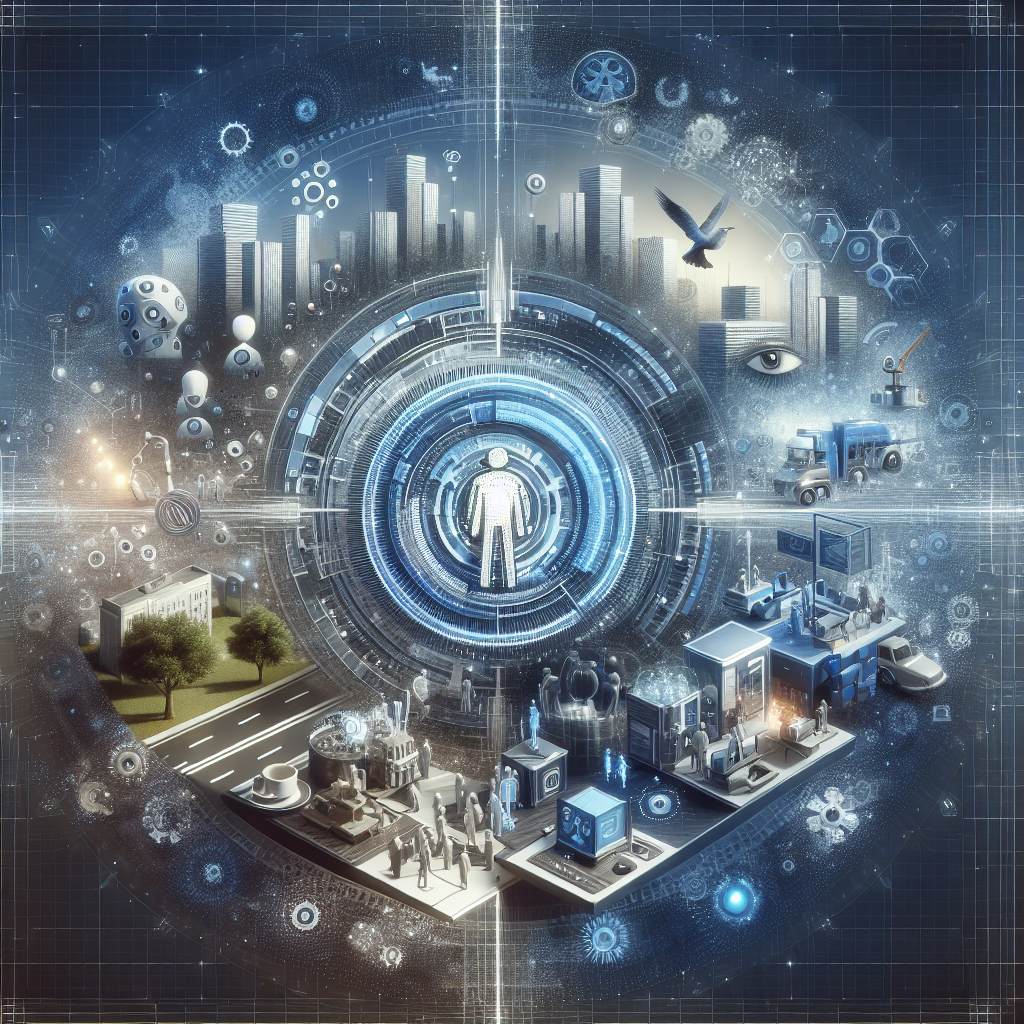Artificial General Intelligence (AGI) is a term used to describe machines that have the ability to understand, learn, and apply knowledge across a wide range of tasks. While we are not quite at the point of developing AGI yet, the advancements in artificial intelligence (AI) technologies are already reshaping industries and transforming the way we work.
In the workplace, the use of AI is becoming increasingly prevalent as businesses look to streamline processes, improve efficiency, and gain a competitive edge in their respective industries. From automated customer service chatbots to predictive analytics tools, the applications of AI in the workplace are vast and varied.
One of the key ways in which AI is reshaping industries is through automation. Many repetitive and mundane tasks that were previously done by humans can now be performed by AI-powered systems, freeing up employees to focus on more complex and strategic work. This not only improves efficiency but also reduces the risk of errors and increases productivity.
In the healthcare industry, for example, AI-powered systems are being used to analyze medical imaging scans, diagnose diseases, and even assist in surgical procedures. This not only speeds up the process of diagnosis and treatment but also helps healthcare professionals make more accurate and informed decisions.
In the finance sector, AI is being used for fraud detection, risk assessment, and algorithmic trading. By analyzing vast amounts of data in real-time, AI systems can identify patterns and anomalies that may indicate fraudulent activity or potential market opportunities. This has the potential to save businesses millions of dollars in losses and improve overall financial performance.
In the retail industry, AI is being used to personalize the customer experience, optimize pricing strategies, and forecast demand. By analyzing customer data and behavior, AI systems can recommend products, tailor marketing campaigns, and even predict future trends. This not only improves customer satisfaction but also boosts sales and revenue for businesses.
While the benefits of AI in the workplace are clear, there are also concerns about the impact it may have on jobs and the workforce. Many fear that automation and AI technologies will lead to job losses and increased unemployment. However, experts argue that while some jobs may be displaced, new opportunities will also be created as businesses adopt AI technologies.
In fact, a recent report by McKinsey & Company found that AI has the potential to create up to 20 million new jobs globally by 2030. These jobs will be in areas such as data analysis, software development, and AI research, all of which require human skills and expertise that cannot be replicated by machines.
Despite the potential benefits of AI in the workplace, there are also ethical and societal implications that need to be considered. Issues such as data privacy, bias in AI algorithms, and the impact on human decision-making are all areas of concern that businesses and policymakers need to address.
To help address some of these concerns, companies are increasingly adopting ethical AI principles and guidelines to ensure that AI technologies are developed and deployed responsibly. This includes transparency in AI decision-making, accountability for AI systems, and fairness in the use of AI algorithms.
Overall, the impact of AI in the workplace is undeniable. From improving efficiency and productivity to creating new job opportunities, AI technologies have the potential to transform industries and reshape the way we work. As businesses continue to adopt AI technologies, it is important for them to consider the ethical and societal implications and ensure that AI is used responsibly and ethically.
FAQs about AGI in the Workplace
Q: What is the difference between AGI and AI?
A: Artificial General Intelligence (AGI) refers to machines that have the ability to understand, learn, and apply knowledge across a wide range of tasks, while Artificial Intelligence (AI) is a broader term that encompasses various technologies and applications that mimic human intelligence.
Q: Will AI replace human jobs in the future?
A: While AI has the potential to automate certain tasks and jobs, it is also creating new job opportunities in areas such as data analysis, software development, and AI research. Experts believe that the impact of AI on the workforce will be mixed, with some jobs being displaced and new jobs being created.
Q: How can businesses ensure that AI is used ethically in the workplace?
A: Businesses can adopt ethical AI principles and guidelines to ensure that AI technologies are developed and deployed responsibly. This includes transparency in AI decision-making, accountability for AI systems, and fairness in the use of AI algorithms.
Q: What are some examples of AI applications in the workplace?
A: AI applications in the workplace include automated customer service chatbots, predictive analytics tools, medical imaging analysis, fraud detection in finance, personalized marketing in retail, and more.
Q: How can businesses prepare for the future of AI in the workplace?
A: Businesses can prepare for the future of AI in the workplace by investing in AI talent and expertise, adopting AI technologies that align with their business goals, and considering the ethical and societal implications of AI in their decision-making processes.

